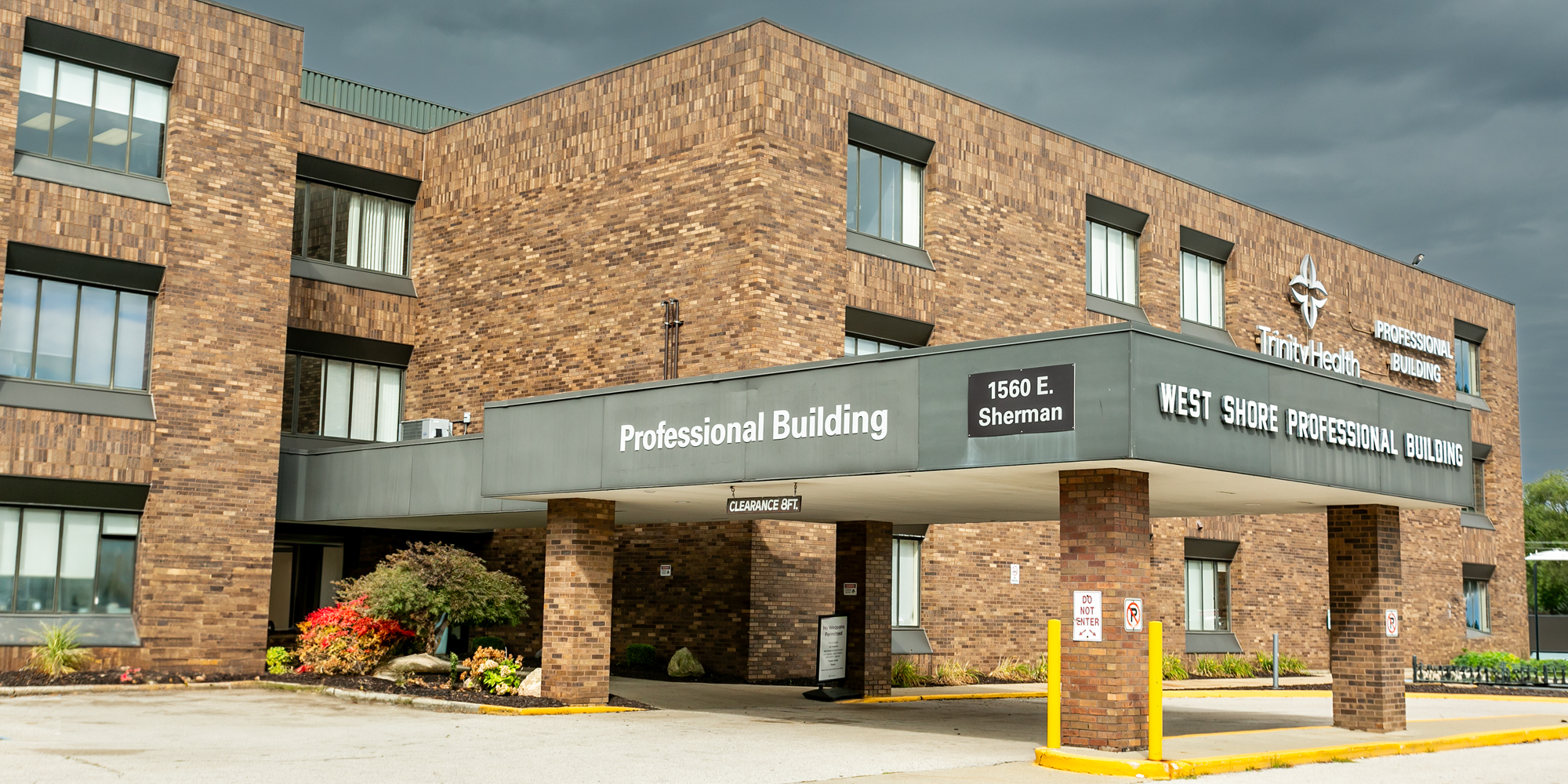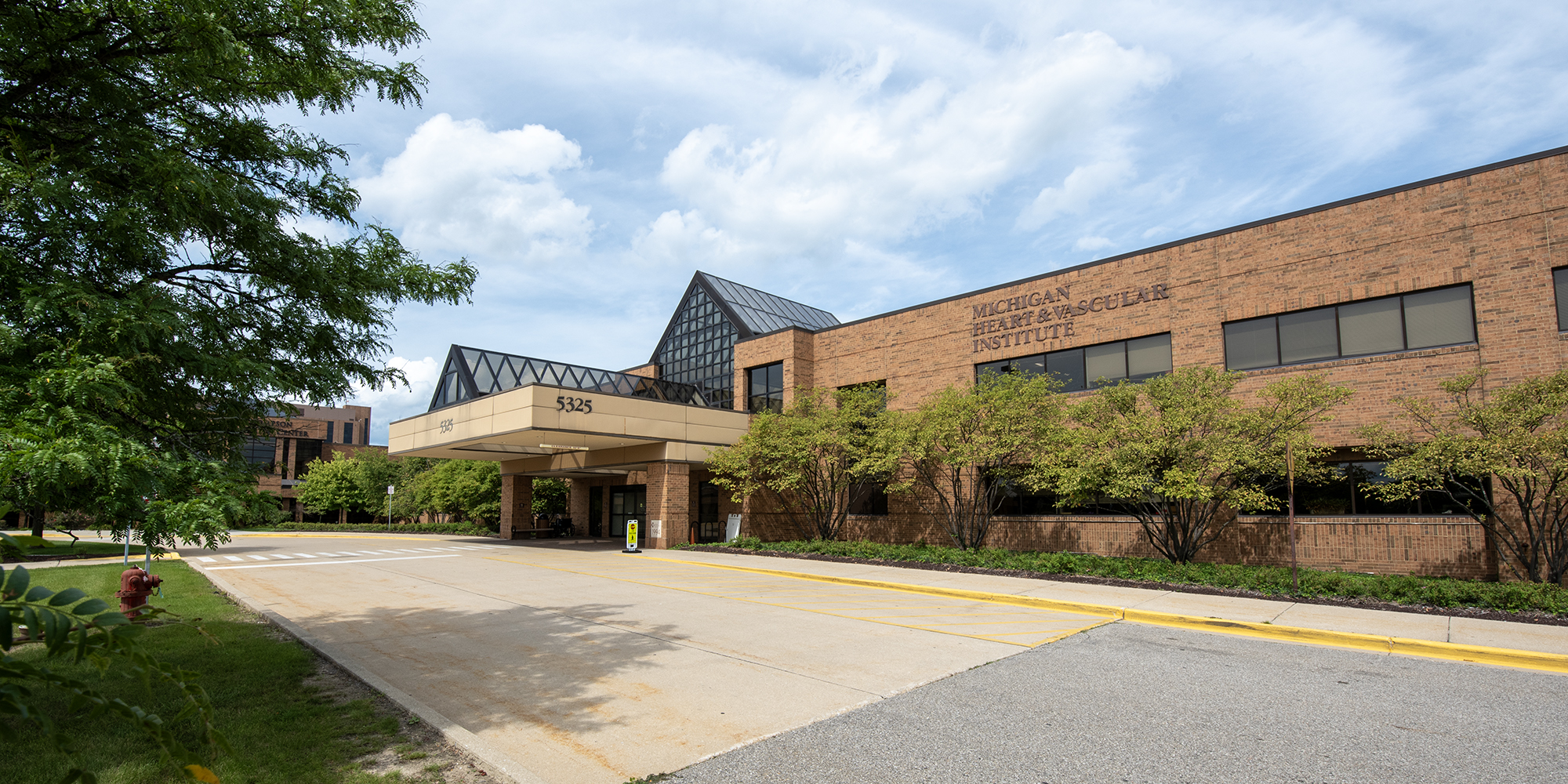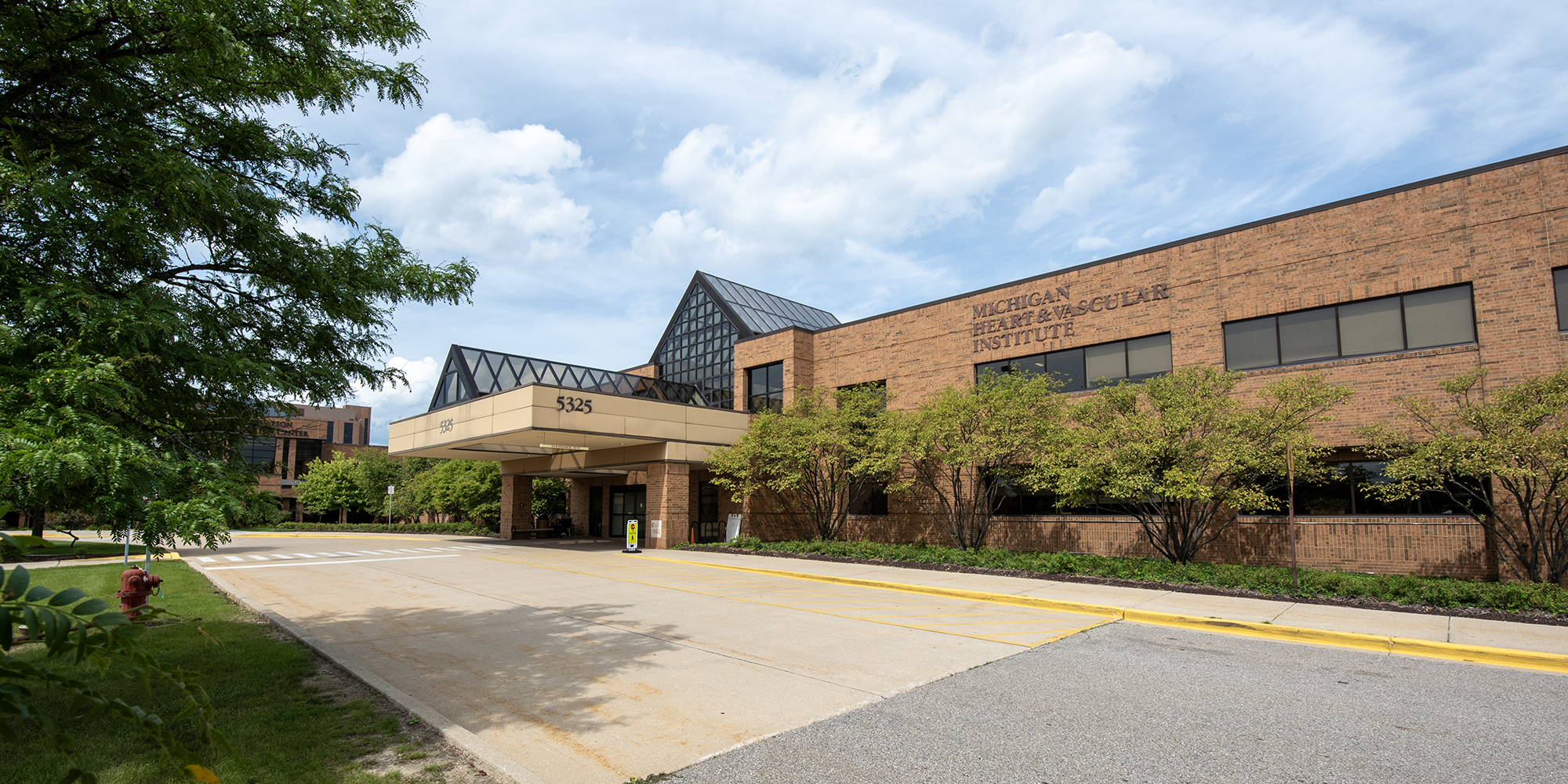Interventional Cardiology Procedures
If standard cardiovascular therapies are not successful, it’s possible to feel better without open-heart surgery. Trinity Health Michigan is home to a highly skilled team of interventional cardiologists. We can treat many conditions using tiny incisions and long, thin tubes (catheters).
Our services help you receive treatments that previously required long incisions and lengthy recoveries. Interventional cardiologists use special technology and sophisticated instruments to deliver the high-quality care we’re known for. And you can expect to be back in the swing of things in a fraction of the time.

Contact Us
To learn more, please contact one of our locations or speak with your physician.
Find a DoctorOur Locations
Interventional Cardiology Procedures at Trinity Health Michigan: Why Choose Us?
Our fellowship-trained interventional cardiologists use research-based methods and hold themselves to the highest care standards. We consistently achieve excellent outcomes, even for complex and emergency procedures.
In some cases, interventional cardiologists and cardiovascular surgeons work together in our hybrid operating room. This room contains the latest surgical and interventional procedure technology. Hybrid procedures enable us to deliver advanced heart therapies using smaller incisions. Find out more about heart surgery.
Interventional cardiology procedures also include diagnostic studies, such as cardiac catheterization. Our experience performing a high volume of diagnostic and therapeutic procedures helps you receive exceptional heart care close to home.
Interventional Cardiology Procedures We Offer
During interventional heart procedures, we make a small incision in an artery in the groin or arm and pass the catheter through the artery to the heart. Sophisticated instruments at the catheter tip and real-time imaging help us accurately perform the procedure.
You typically do not need general anesthesia. We often use conscious sedation, which helps you feel relaxed and sleepy and experience no discomfort. Our experience with conscious sedation for certain procedures is unrivaled in Michigan, leading to safe, efficient care.
Interventional procedures available at Trinity Health Michigan include:
Arrhythmia Treatments
Interventional cardiologists work alongside arrhythmia experts (electrophysiologists) to treat abnormal heart rhythms. We offer the best available therapies, including the WATCHMAN FLX™ device for atrial fibrillation (Afib).
This implantable device seals a tiny pocket of heart tissue where blood clots can form and cause a stroke. People with Afib face a high risk of stroke due to blood pooling in the tissue pocket. The WATCHMAN device seals the pocket, providing lifelong protection against stroke. Find out more about WATCHMAN for Afib.
Percutaneous Coronary Intervention (PCI) for Heart Attack
Trinity Health Michigan is home to the first community hospital to perform elective (non-emergency) PCI. We were also the third in Michigan to offer emergency PCI (also known as emergency angioplasty).
PCI is a procedure to evaluate and treat blocked coronary arteries. It’s an emergency treatment for people experiencing heart attack symptoms. An elective procedure can lower your heart attack risk if an artery is significantly blocked.
Our PCI expertise and superior outcomes has earned our program national recognition. Some of our locations are accredited Corazon facilities. Corazon recognizes high-performing organizations, such as ours, that meet or exceed research-based care methods.
Percutaneous coronary intervention involves:
- Angioplasty: A procedure to widen narrowed arteries by pushing away deposits of a waxy substance (plaque)
- Stenting: Placing a hollow mesh device in the blood vessel to keep it open
Endovascular Aneurysm Repair (EVAR)
An aneurysm occurs when there is a weak spot in a blood vessel wall. This causes the vessel to balloon outward due to the force of blood flow. EVAR reinforces the area and protects you against complications, like an aneurysm rupture.
Repair involves placing a stent graft inside the blood vessel. The graft is a hollow tube with a metal mesh support. Blood flows through it instead of putting pressure on the aneurysm. Successful treatment also prevents new aneurysms from forming nearby.
Heart Valve Repair and Replacement
We use interventional procedures to carry out sophisticated heart valve repair procedures, including:
- Transcatheter aortic valve replacement (TAVR): This procedure uses a replacement valve to relieve the symptoms of aortic valve narrowing. The replacement valve is on a mesh scaffold that pushes narrowed heart valve tissue away instead of removing it.
- MitraClip™: We were one of the first hospitals in the United States to offer MitraClip for mitral valve regurgitation (a leaky heart valve). This tiny implantable clip attaches to the tips of the mitral valve. It helps the valve snap shut so that blood does not flow back toward the heart.








